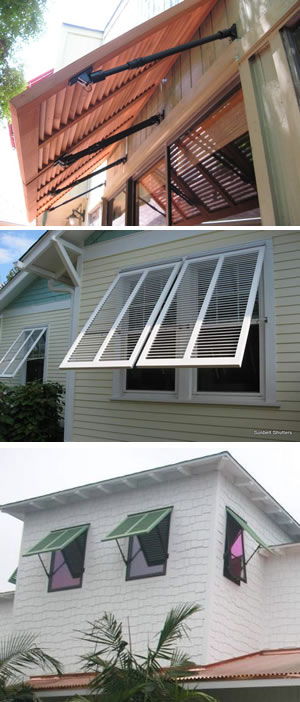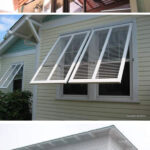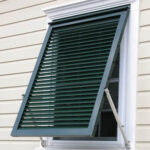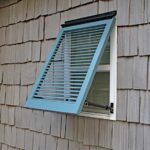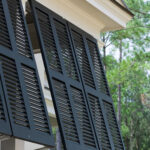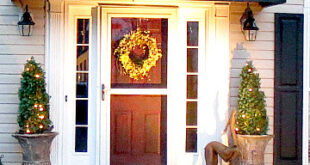Bahama shutters, also known as Bermuda shutters, are a popular choice among homeowners for both their functionality and aesthetic appeal. These shutters have a rich history that dates back to the early colonization of the Bahamas, where they were originally used to protect homes from the harsh tropical climate.
In the 17th and 18th centuries, Bahama shutters were made from materials such as palm leaves and wood, and were designed to provide shade and ventilation while also keeping out rain and debris. Their distinctive louvered design allowed for airflow while still providing privacy and security.
Over time, Bahama shutters became popular across the Caribbean and other parts of the world with similar climates. Today, they are also commonly used in coastal areas prone to hurricanes and strong storms, as they offer protection against high winds, flying debris, and heavy rainfall.
One of the main benefits of Bahama shutters is their ability to provide shade and ventilation while still allowing natural light to filter through. This makes them an energy-efficient option for homeowners, as they can help regulate indoor temperatures and reduce the need for air conditioning. Additionally, Bahama shutters can also enhance the curb appeal of a home, adding a touch of tropical elegance to its exterior.
In terms of durability, Bahama shutters are typically made from materials such as aluminum, vinyl, or wood, making them resistant to corrosion, pests, and extreme weather conditions. This means that they require minimal maintenance and can last for many years when properly cared for.
Overall, Bahama shutters offer a combination of practicality and aesthetics that make them a popular choice for homeowners looking to enhance the beauty and functionality of their homes. Whether you live in a tropical climate or simply want to add a touch of coastal charm to your property, Bahama shutters can be a stylish and practical addition to any home.
